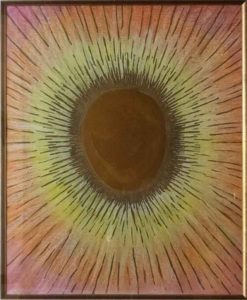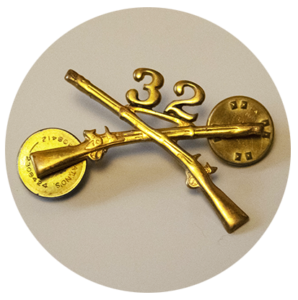MIND LOOKING INTO MIND ITSELF
HAVEN O’MORE: A Life in Poetry and Books

Haven O’More was inspired from almost the very beginning of his life by learning history, the Bible, and that he is a direct descendant of three illustrious men. – the 4th-century Celtic poet-scholar, warrior, and king, Haven O’More; the saint and martyr Sir Thomas More; and General Thomas Jonathan (Stonewall) Jackson. Early readings, even before starting to school, of Shakespeare, Milton, and the Bible, especially the New Testament in Greek with his father and mother, trained O’More to think and to feel in terms of high endeavor and noble service.
For a large part of his life, O’More studied and practiced Yoga: the Science of the cessation of “normal” mental activity or what Yoga calls War; and with Yoga, he sought transformation to mind seeing directly into mind or what is called Peace. In pursuit of knowledge, O’More lived, worked, and traveled in many parts of the United States, Europe, the Middle and Far East, and Mexico. Twice O’More served in the U.S. Army, first in Europe and later in Asia. He worked at conceptual levels in pure mathematics, the general sciences, and linguistic structures with special attention to Celtic, Middle Eastern (Egyptian, Hebrew, and Islamic) and Far Eastern (Vedic, Taoist, and Buddhist) philosophical foundations. He applied himself equally to comprehensive studies in Western theological and philosophical points of view.
Haven O’More was the founder, with Lorea O’More, of the Institute of Traditional Science, a nonprofit foundation specializing in pure knowledge and its transmission. He directed its activities in research (supporting research scholars in topics as varied as James Joyce, Greek philosophy, and the Mahābhārata), education, and publishing (with the National Endowment for the Humanities, Aperture Foundation, the University of Chicago, and the William Blake Trust, among others) from 1972 to 2008.
As originator, co-founder, and General Partner of the partnership, The Garden Ltd. (the name comes from Et HaGaN: The First Garden where all possibility is transcendent and equal to activity), O’More personally conceived and alone formed The Garden’s Collection of books and manuscripts. From its beginning, O’More aimed at nothing less than material of the greatest rarity, in the most superb possible condition, and with the widest and greatest influence on the highest activities of men and women worldwide from the earliest cultures to the present. In forming The Collection, O’More tried never for an instant to forget that, first of all, such works are imbued with life-giving forces and intelligence; being intelligent, they stand most in the future while giving form and passion to the present and sending a living light to the past.
O’More published Sacrificial Bone Inscriptions, applying the same principles to his poetry that he applied to the Collection – to advance the seminal ideas and their operational modes – meaning to prepare, to awaken, and to activate “launching points into the realm of mind.”
For many years , O’More labored to introduce the idea and to lay out the plans and open up the way to build a new sacred city which would serve all mankind from this time forward. In attempting to continue the vision and work of his forefathers, O’More’s guiding principle concerning The Collection of The Garden Limited had always been to place the universal treasures he had collected at the heart-core of this new sacred city and its great research library. Haven O’More strove, through the Collection’s mind-awakening holding and activities, and through his own works and creations, to bring Light to the heart of man and to illuminate man’s search for Mind.
HAVEN O’MORE: MILITARY SERVICE
KOREA
 Second Lieutenant Richard Haven Moore (Haven O’More) shivered as he surveyed the desolate scene surrounding his foxhole. Frozen bodies, friend and foe, lay in contorted shapes everywhere on the snow-covered battlefield. A fire had been started near the mess tent, though its warmth was useless in the minus-thirty-degree weather. In the next foxhole, O’More’s closest combat buddy had committed suicide after losing too many men in the 10-to-one Chinese assault of the previous night.
Second Lieutenant Richard Haven Moore (Haven O’More) shivered as he surveyed the desolate scene surrounding his foxhole. Frozen bodies, friend and foe, lay in contorted shapes everywhere on the snow-covered battlefield. A fire had been started near the mess tent, though its warmth was useless in the minus-thirty-degree weather. In the next foxhole, O’More’s closest combat buddy had committed suicide after losing too many men in the 10-to-one Chinese assault of the previous night.
A copy of the Dent Classics INFERNO bounced in Second Lieutenant Richard Haven Moore’s (Haven O’More’s) shirt pocket as he carried his wounded comrades from the battlefield to the first aid station. The 1st Battalion, 32nd Regiment had fought through the night against a Chinese force that outmanned them with ten-to-one, and Lt. O’More had kept Dante close throughout the battle.
Survivors of the night’s fighting in the North Korean mountains were called to the mess tent, but food and coffee froze before the men walked ten steps from the fire. Disgusted, grieving, and hungry, Lt. O’More checked on his men at the first aid station – where he watched wounded soldiers needlessly die while bottles of frozen plasma swung uselessly overhead. Once the wounded received what treatment was available, the men of the 1/32 stacked the frozen Chinese, American, and Republic of Korea corpses into a defensive human fence for the coming night’s battle.
Too exhausted to mourn, O’More dropped into his foxhole to clean his weapons, cursing the summer-grade lubricant that had rendered most American rifles useless. How many of his men lay dead or dying on the battlefield because their weapons had frozen? Cold beyond belief, filled with rage and grief, the 20-year-old Haven O’More opened Dante’s Inferno and escaped from the living, frozen hell of the battlefield to Dante’s frozen, illuminating, penultimate circle of Hell.
AT THE TOMB OF DANTE ALIGHIERI
strikes sooner some greater and lesser
high station seems to urge Death on
faster come Death yet faster
strike and peel this mortality from
bone from nerves from memory
take me to yourself to its
conclusion this life this flowing
this changing this crumbling.
GERMANY
Years earlier, in postwar occupied Germany, then Private Richard Haven Moore (later Haven O’More) had disregarded all non-fraternization regulations to follow an alluring young German woman home. Ignoring the consequences he faced, O’More befriended the beautiful Trudy and her father, a German general who had lost both legs and an arm fighting on the Russian front. Richard brought them cigarettes and chocolate from the base and, in return, the general, a friend of the late Richard Wilhelm, the Sinologist translator of the I CHING from Chinese to German, taught the 16-year-old O’More, a private from the flat plains of middle America, the I CHING and the sacred traditions behind the text.
Ordinary men returned from combat with souvenirs, war stories, and battle wounds. Haven O’More, even as a teenager, returned from war with international friends, battle wounds that earned him 100% disability from the Veterans Administration, combat awards, and, more deeply important, a profound new understanding of sacred traditions East and West – and a driving hunger for more sacred knowledge and the books that contained this wisdom. Based on what he had learned in occupied Germany, the I CHING stayed with O’More the rest of his life: Haven O’More’s last creative work was CHANGES, a collection of the sixty-four hexagrams of the I CHING with commentary for each written in the form of a Shakespearean sonnet.

for a test of strength and endurance. No abyss
seems to open underfoot: water from the fountain
of youth springs in the blood: youth hears no hiss –
the serpent swims in dream, in the short night
before day kissed with sleep. Sunlight always glows
with intensity just before sinking into the rock, plight
of folly mistaking the concrete for such shadowy shows
flickering on the walls and unrecognized. What manner
speaks most loudly in these affairs? What now brings
good fortune, what brings success? What banner
will youth fly? These questions put it sharp. He sings
best who spares himself for the long, hot race
run in sand as well as up the cliff’s deadly face.
In 1995, the author of A Gentle Madness confused Haven O’More with an African-American with a similar name and reported the latter’s six-week military service as Haven O’More’s. In fact, O’More attended the Infantry School at Ft. Benning, GA and received the Victory Medal and Army of Occupation Medal for his service in occupied Germany, the Occupation Medal for his service in Japan and the Combat Infantry Badge, Korean Service Medal, and the Purple Heart with First Bronze Oak Leaf Cluster for his combat service in Korea
O’More’s last request was for a book, the Knox Bible. It was the last book he held in his hands. The last words spoken to Haven O’More were the Sonnet from DE TESTIMONIO ANIMAE presented in the web section of the same title.
Haven O’More died in 2008 from heart failure and the long-term effects of the battle wounds he received in Korea.
